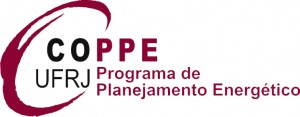COPPE
COPPE was founded in 1963 and has become the largest engineering, teaching and research center in Latin America. Over 12 thousand master and doctoral candidates have obtained their degrees at COPPE, under the supervision of 325 full-time professors, all of whom possess doctorates. Currently, COPPE has approximately 2800 students and a staff of 350 employees. Its 116 modern laboratories make up Brazil´s largest laboratory complex in engineering.
The Energy Planning Program (PPE) of COPPE studies issues linked to environmental planning, which is an area closely related to the energy field. PPE also coordinates the Environmental Planning Program run by COPPE at the Master’s Degree and PhD levels, backed by PADCT (Program for the Support of Scientific and Technological Development in Brazil).
In this specific research project, PPE will participate through one of its research centers, the Center for Energy and Environmental Economics (CENERGIA).
Cenergia
The Centre for Energy and Environmental Economics (Cenergia), established in 2002, is an integrated research laboratory of the Energy Planning Program (PPE) of the Graduate School of Engineering (COPPE) of the Universidade Federal do Rio de Janeiro, in Brazil. Cenergia’s mission is to develop applied research and disseminate innovative knowledge on complex interactions of the energy sector with socio-economic development and global and local environmental dimensions. Applying pioneering energy planning modeling tools, Cenergia’s work supports energy and climate policymakers in understanding the synergies and trade-offs of technological innovation pathways towards a low-carbon transition in Brazil, Latin America and in the world. Cenergia has been intensively working with integrated optimisation energy models, especially with the MESSAGE model since 2003 and, more recently, with TIMES and REMIX-CEM-B. Over time, these global integrated-assessment models (IAMs) have been upgraded and tailored to better represent the Brazilian and Latin America region energy sectors, incorporating over 8,000 energy supply and demand technological options, and their interactions with economic development, climate change, local air pollution, water footprint, land use change and climate policies. Moreover, the IAMs developed in CENERGIA are integrated with specific tailored models, which were created in the laboratory, such as the CAESAR model (Carbon and Energy Strategy Analysis for Refineries), for instance, or even with other tools prepared to run life-cycle analysis or process analysis for evaluating carbon capture facilities, concentrated solar power, PV, etc. Other models used in Cenergia include LEAP, RETScreen, HOMER, JEDI and MoMo.
Cenergia is led by professors Roberto Schaeffer, Alexandre Szklo and André Lucena, all from the PPE/COPPE/UFRJ, who coordinate a vast international team of research fellows, including five senior post-doc fellows, and over twenty doctoral and master students in energy planning, from Brazil, USA, South-America, and European countries.
Since its foundation, Cenergia has fostered collaboration among influential energy actors in industry, central and local governments, nongovernmental organisations and civil society. As a result, Cenergia has consolidated partnerships with several stakeholders in Brazil and abroad, including the Brazilian Energy Research Agency (EPE) from the Ministry of Mines and Energy (MME), and the Ministry of Science and Technology (MCTI), the Secretary for Strategic Planning of the Presidency of Brazil (SAE), the Brazilian Innovation Agency (FINEP), the Brazilian State-owned oil and gas company (PETROBRAS), CEMIG, Brazilian Foundation for Sustainable Development (FBDS), among others.
Besides its relevance at the national level, Cenergia is also an important energy planning think-tank for Latin American and global issues. It has participated in a large number of international projects with world-class partner institutes and organizations, namely the European Commission, the World Bank (WB), the Inter-American Development Bank (IDB), Organizacíon Latinoamericana de Energia (OLADE), the Institute for Energy Economics at the Bariloche Foundation (IDEE, Argentine), the UNEP Risoe Centre on Energy, Climate and Sustainable Development (URC, Denmark), the International Atomic Energy Agency (IAEA-UN), the International Energy Agency (IEA), the Department of Economic and Social Affairs of the United Nations (UNDESA), the United Nations Industrial Development Organization (UNIDO), the UK Government, the Economic Commission for Latin America and the Caribbean (CEPAL), the Institute of Development Studies (IDS, UK), the World Wildlife Fund (WWF), the International Institute for Applied Systems Analysis (IIASA), the Potsdam Institute of Climate (PIK), the Netherlands Environmental Assessment Agency (PBL), the Institut du Developpement Durable (IDDRI, France), the Pacific Northwest National Laboratory (PNNL, USA), Institute of Energy Economics and the Rational Use of Energy of the University of Stuttgart, the German Aerospace Center (DLR), the Deutsche Gesellschaft für Internationale Zusammenarbeit (GIZ), World Resource Institute (WRI), International Center for Tropical Agriculture (CIAT), among others. Cenergia also integrates with Universidade do Minho (Portugal), Universitat Autònoma de Barcelona (Spain) and Cranfield University (UK) the nework NETEP – European-Brazilian Network on Energy Planning, which is a joint research project financed by the European Commission under the 7th Framework Program (FP7). Finally, through its faculty members, Cenergia has been also collaborating with the Intergovernmental Panel on Climate Change (IPCC).
Since its creation, Cenergia’s excellence of scientific knowledge has been disseminated in more than one hundred peer-reviewed international journal papers and sixty scientific book chapters, and over one hundred international and national conference proceedings.
The quality of the research done in the laboratory is also attested by the awards it received in the last five years, including four academic awards earned by the three above-mentioned professors for their performance in the School of Engineering of Universidade Federal do Rio de Janeiro, and three successive awards (2012, 2013, and 2014) given by Vale-Capes (from the Ministry of Education of Brazil for outstanding research in applied science and engineering to respond to climate change challenges.

